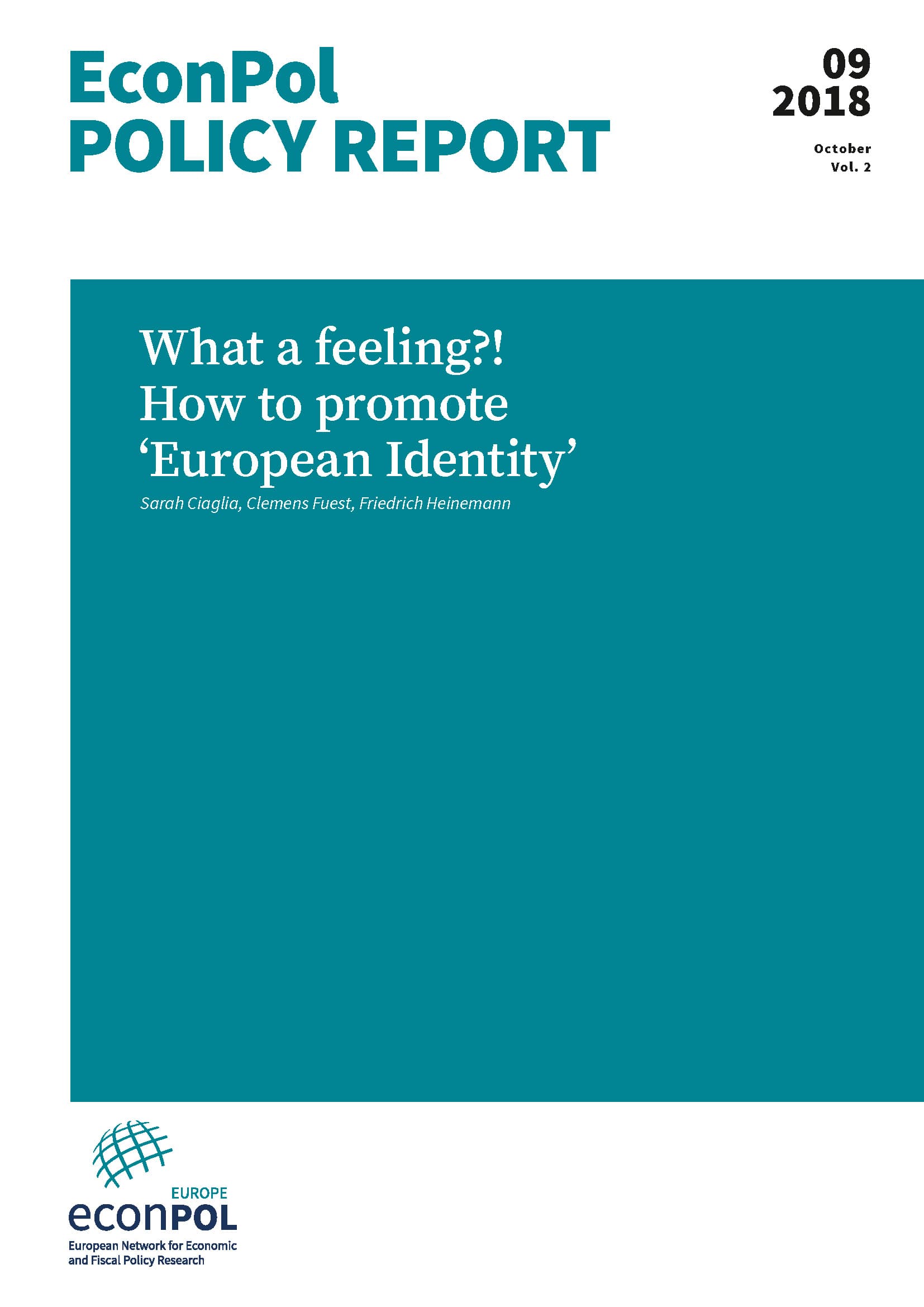AI-Generated Summary
Context and Purpose
The ECONPol Policy Report titled "What a feeling?! How to promote ‘European Identity’" is a publication that addresses the crucial concept of European identity in the context of declining public support for the European Union (EU). The report is authored by Sarah Ciaglia, Clemens Fuest, and Friedrich Heinemann, who delve into the significance of a shared European identity as a vital component for fostering European integration. Given the recent challenges, including the UK's decision to leave the EU, the study seeks to explore how identity can serve as a foundation for strengthening cooperation among member states.
Key Insights on European Identity
The authors emphasize that identity is a significant driver of individual behavior, with the emergence of joint group identities being essential for building trust and cooperation among diverse populations. The report posits that cultivating a European identity, which exists alongside national identities, is critical for the future of the European project. This duality allows for greater cooperation while respecting cultural diversity across nations.
Trends and Determinants
The report carefully examines current trends in European identity, drawing from extensive literature to highlight the key determinants that influence this identity. Among these factors are shared values, cultural exchange, and participatory governance. Understanding these determinants is essential for developing effective measures aimed at promoting a sense of belonging to the European community.
Classification of Measures
Based on the identified determinants, the authors propose a classification of measures that can be employed to foster European identity. They distinguish between 'civic' and 'cultural' forms of European identity, as well as between measures that enhance 'input' legitimacy—focusing on participation—and 'output' legitimacy, which emphasizes the effectiveness of the EU's actions. This framework allows policymakers to tailor their strategies to different aspects of European identity.
Proposals for Advancement
The report outlines six detailed proposals aimed at promoting European identity. These proposals include: 1. Transnational Party Lists: Encouraging political representation that transcends national boundaries, fostering a sense of shared political identity. 2. EU Citizens’ Assembly: Creating a platform for citizens to engage directly in EU decision-making processes, thereby enhancing civic involvement. 3. EU Consular Offices: Establishing consular services that reinforce the EU's presence and support for citizens abroad. 4. Pensioners’ Erasmus: Expanding the Erasmus program to include pensioners, promoting cultural exchange and social interaction among older citizens. 5. ‘European Waltz’ Program: A cultural initiative designed to celebrate European heritage through dance and music, enhancing cultural ties. 6. EU Public Service Broadcaster: Establishing a broadcaster dedicated to European issues, providing a platform for shared narratives and fostering a common European discourse.
Conclusion
In summary, the ECONPol Policy Report presents a thorough examination of European identity and its implications for EU integration. The authors provide a robust framework for understanding the nuances of identity, alongside actionable proposals to strengthen the sense of belonging among European citizens. As the EU faces challenges, these insights serve as a vital resource for policymakers and stakeholders committed to fostering a united and sustainable European community.
